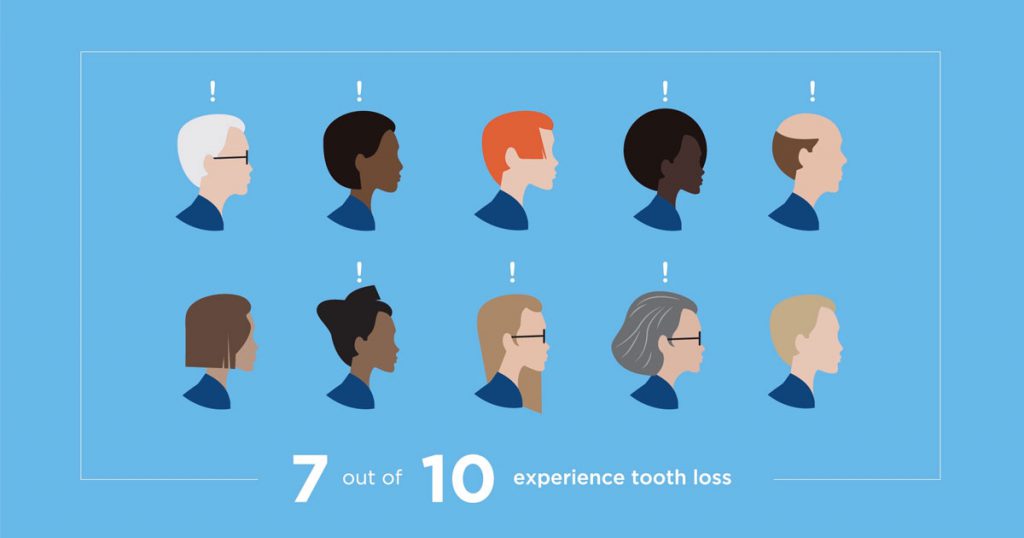
While a single dental implant may replace a broken or lost tooth, it also can serve as an anchor for multiple replacement teeth. Full-mouth dental implants are what they sound like: a long-lasting replacement for most or all of a patient’s teeth.
Full Dental Implants vs. Dentures
With dentures, not only is there a risk of bone loss in the jaws, but the patient is opened up to potentially embarrassing situations at every meal. Advantages of dental implants include:
- Full-mouth dental implants are anchored to the jawbone with titanium, and the bone actually fuses to the implant through a process called osseointegration, reducing the risk of bone loss.
- Dentures will wear out over time and need to be replaced.
- Dental implants restore function on par with a patient’s original teeth. Eating with dentures can mean worrying about what’s on the menu.
A single dental implant is easy to imagine – it replaces the root of a tooth with the titanium implant with a crown on top. Full-mouth dental implants work differently. When replacing a mouth full of teeth, two or more titanium implants provide an anchor for the secure mounting of replacement teeth, preventing slipping and bone loss.
Cost of Full-mouth Dental Implants
No two patients have the same mouth, and the cost of full-mouth dental implants will vary from patient to patient. When planning for the procedure, it’s important to consult both with an oral and maxillofacial surgeon (OMS) and any dental or medical insurance providers. Also, keep in mind:
- The cost of full-mouth dental implants is not the cost of 32 individual dental implants. Each titanium implant can provide support for multiple replacement teeth.
- Full-mouth dental implants may be partially covered under select medical or dental insurance policies.
- When properly cared for, dental implants represent a potentially lifelong replacement for missing teeth, making them a wise investment for the future.
- Many OMSs are able to put patients in contact with affordable financing options specifically designed for oral healthcare.
Choosing a fixed bridge to replace a single tooth can lead to damage in adjacent teeth, potentially requiring the replacement of multiple teeth in the long run. A single dental implant can provide a true replacement for a missing tooth and prevent the need for future dental work. Similarly, full-mouth implants take the guesswork out of the future of a patient’s oral health. Whether a patient needs one tooth replaced or all of them, it’s essential to consult an OMS and develop a plan as soon as possible.
Article Courtesy of AAOMS, https://myoms.org/
All procedures performed at Pottstown Oral Surgery can be done under general or local anesthesia. Click here to learn more about us.